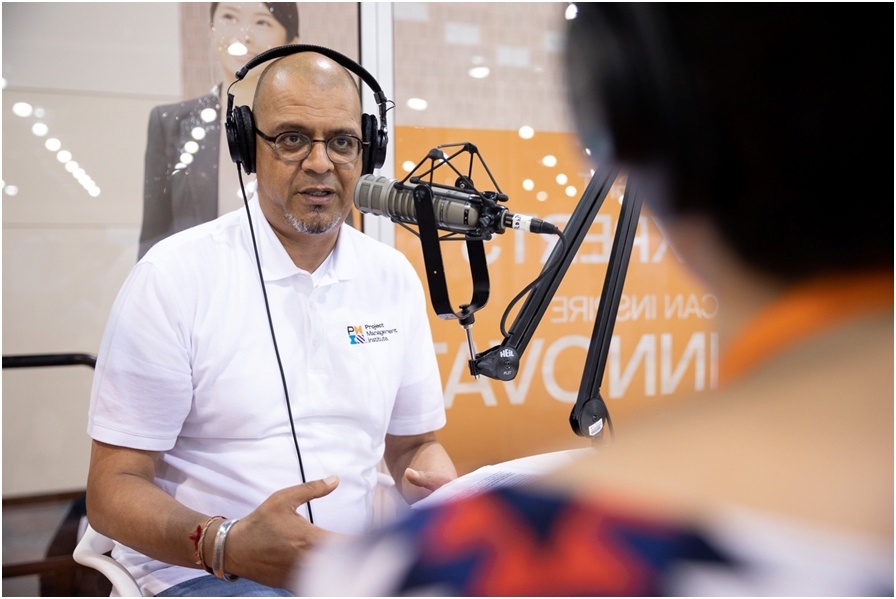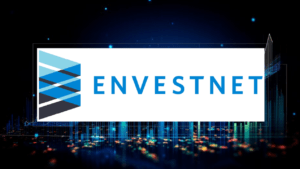
Element Bio Secures $277M in Series D Funding
Element Biosciences, a pioneering developer of innovative technologies for scientific advancement, has successfully secured a …

Sunil Prashara, President & CEO of Project Management Institute (PMI) has brought a bold vision to PMI that honors the best of its 50-year heritage – while also plotting a bold course for the future.
Sunil prides himself on questioning the status quo and pushing the envelope. Under his leadership in just over a year since assuming leadership of the organization in March 2019, the association has undergone a bold reinvention.
Sunil is quick to credit his team with making these accomplishments possible; major wins have included implementing a
powerful new regional model to place decision-making closer to PM’s stakeholders around the globe; launchingan energetic and forward-looking new brand; refreshing the association’s strategy and accelerating its digital transformation journey; and developed a host of exciting digital products and platforms, including new agile products through its acquisition of industry agile leaders Disciplined Agile and Flex.
All of these efforts have been crucial in ensuring that after five decades, the association continues to maintain relevance for professionals in a profession undergoing enormous change.
Sunil says the pace of change across industries is accelerating, driven by global economic, political, demographic and technological trends.
To keep pace, organizations are launching an increasing number of projects to turn their strategies into reality and relying on project managers to not only respond to change but to drive change within their organizations. 79% of executives recently surveyed by Accenture Technology agree that the future of work will be rooted more in projects than specific roles – driving an increased demand for professionals who can successfully lead projects and navigate tumultuous change.
“Success today demands more than agility,” Sunil says. “It requires organizations to be almost gymnastic in their ability to pivot and respond to change. In a time of increased business disruption, project leaders can stand apart by embracing change and demonstrating their ability to effectively lead teams and work with a wide range of stakeholders.”
Sunil says that project professionals need to understand how their work ties in with broader market trends and their organizations’ strategies. Andit’s critical, he says, that they help the C-suite understand how their work contributes to implementing strategy and turning ideas into reality.
“Leaders are laser-focused on business outcomes and value.” Sunil says. “Project managers should be too. That’s why, for example, PMI has spearheaded the Brightline Initiative, a coalition of global organizations dedicated to helping C-suite executives bridge the gap between strategy design and strategy implementation.”
Brightline represents just one part of a broader strategy for PMI to advocate for, enable, and support a growing global community of change makers.
Building a Global Community of Change Makers
PMI was founded in 1969 and played a leading role in establishing project management as a profession. The organization emerged in response to the increased need for skilled professionals who could implement strategies and bring bold ideas to life. Today PMI is the world’s leading association for those who consider project, program or portfolio management their profession. It also serves a rapidly expanding base of “change makers” around the world whomay not have a formal project management title, but find themselves managing significant initiativesas part of their work.
“Through global advocacy, collaboration, education and research, we’re helping to prepare more than three million project management professionals and millions of change makers for what we call the ‘Project Economy’ – the coming economy in which work, teams and individuals are organized around projects,” Sunil says. “PMI provides a global forum for project professionals to exchange ideas and best practices. We also offer opportunities for networking and dialogue through events, publications, chapter membership and much more.”
Today PMI is powered by more than 600,000 members and more than 300 local PMI chapters in every corner of the globe. The community places special emphasis on contributing their unique skills and talents to maximize social benefit. Last year, for example, PMI volunteers donated more than 150,000 hours– more than triple the original goal – to PMI’s Celebration of Service initiative, which focuses on supporting the United Nation’s 13 Sustainable Development Goals. As Sunil notes, who better than project professionals to tackle the world’s toughest challenges?
PMI continues to invest in new products, technologies, and channels to facilitate the exchange of ideas. While PMI is best known for its gold-standard certifications like the PMP® (Project Management Professional), it’s also developing exciting new offerings – ranging from PMI Launchify (which helps emerging project professionals understand the language of project management) to Snippets (offering bite-size learning for professionals on the go. The association has even began developing offerings related to Citizen Development, designed to help professionals tap into the growing demand for “low-code, no code” and app development skills for non-technical professionals. PMI continues to explore a wide range of offerings designed to strengthen the capacity and skills of project professionals facing unprecedented complexity and speed of change.
“Technology prowess is not enough these days,” says Sunil. “PMI has long believed that project managers need robust skills beyond technical project management capabilities. While these fundamentals will always be important, they are increasingly ‘table stakes’ and must be complemented by what we call ‘Power Skills’ – strong interpersonal and people skills like empathy, collaborative leadership, and an innovative mindset.
Responding to the Pandemic
Of course, leaders face their greatest challenges during times of crisis. PMI’s investments in its own digital transformation paid unanticipated dividends in allowing it to quickly transition to virtual work as COVID-19 emerged as a global threat. The organization successfully converted to an all-virtual environment within the span of two weeks.
PMI was also early in responding to the crisis. Sunil put a crisis team in place to monitor the situation two months before the majority of the world’s organizations and governments shut down. Thanks to its newly installed regional operating model, it was able to gain early insights into the COVID-19 threat from its team in China. The organization quickly took measures to ensure the health and safety of its staff and stakeholders – implementing travel restrictions and hospital-level cleaning of its offices and facilities.
“The pandemic also accelerated our work in adapting our portfolio to a ‘digital first’ environment,” says Sunil. “We re-imagined all of our events, products, and services to meet a pool of stakeholders who were increasingly working from home. We even embraced online proctoring for our online certification exams and piloted new products – including Disciplined Agile, a comprehensive toolkit for working in agile ways – to serve a growing number of professionals operating in digital environments.”
Sunil, who speaks frequently about the need for empathy in leadership, has also “walked the talk” by hosting regular “coffee chats” to foster staff connections and information sharing. PMI has also introduced wellness support in the form of a staff holiday to fight burnout.
Finally, the pandemic has shone a light on the importance of project professionals in helping organizations navigate unprecedented levels of change. Project managers are the people skilled at turning change into opportunity, so the need for change makers will only grow in the years ahead. To support this community, PMI has provided more than 500,000 Professional Development Units (PDUs) free to its community and has made a variety of discounted certifications and courses available.
In the months ahead, PMI will continue providing compelling digital products, offerings and experiences not only to its traditional base of project managers but to a wide variety of change makers across sectors and industries. As the need for change agents accelerates around the globe, PMI will extend its footprint to a broader community than at any time in its previous50-year history.
“These efforts will include continued thought leadership and advocacy,” says Sunil, “helping organizations and individuals understand how work is changing in a ‘projectized’ world and why organizations must become ‘gymnastic’ – leveraging a mix of control and agility in driving solutions and achieving superior business outcomes.”

“ Success today demands more than agility. It requires organizations to be almost gymnastic in their ability to pivot and respond to change. ”

Element Biosciences, a pioneering developer of innovative technologies for scientific advancement, has successfully secured a …

In a recent transaction, Janney Montgomery Scott LLC, a financial services firm, purchased 7,125 shares of the iShares ESG Advanced …

A recent regulatory filing reveals that Envestnet Portfolio Solutions Inc. has decreased its holdings in the Invesco S&P 500 Equal …
Discover the number of choices of black british dating If you are looking for a dating site that caters particularly to black british singles, then

Leave us a message
Subscribe
Fill the form our team will contact you
Advertise with us
Fill the form our team will contact you